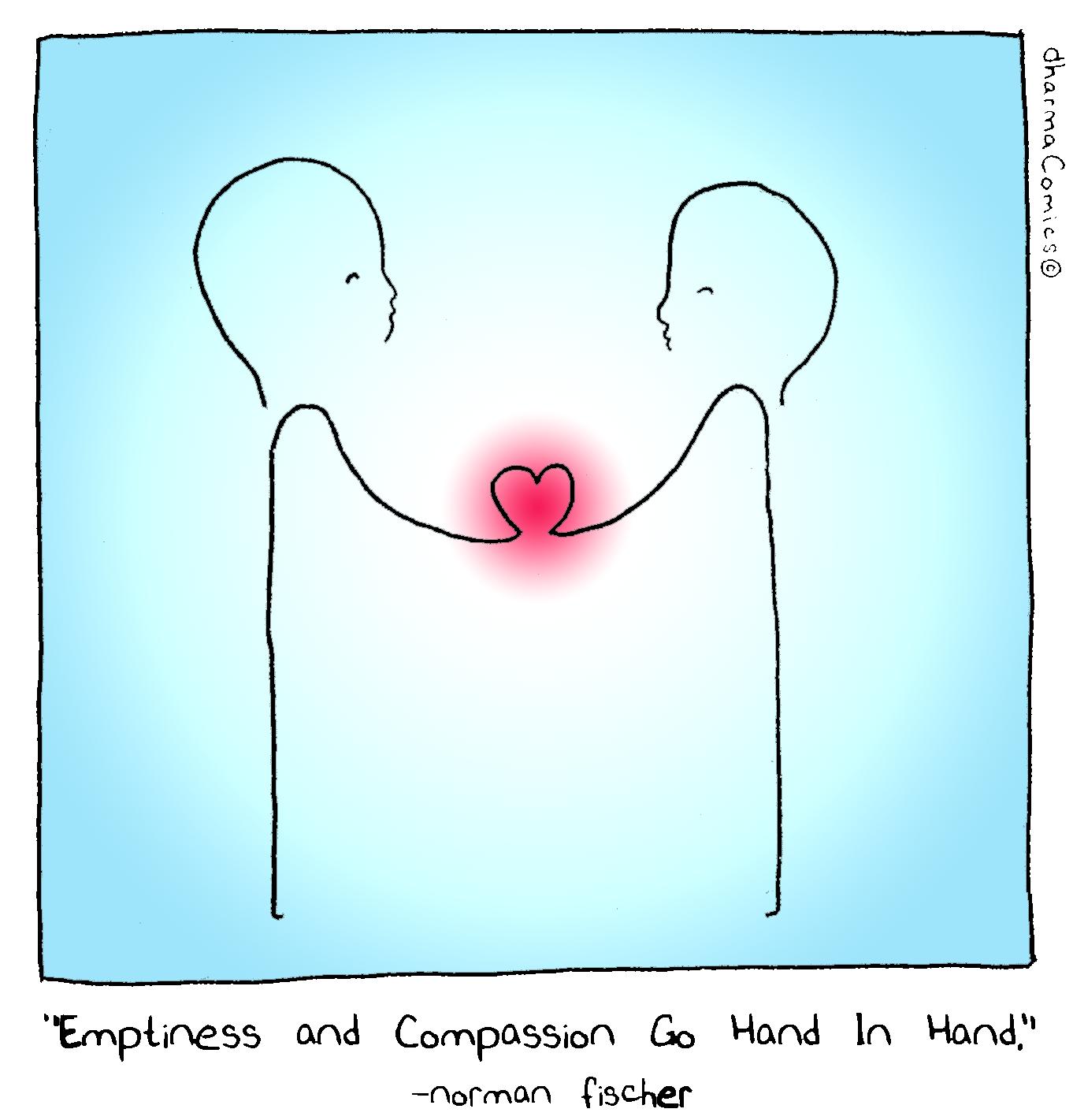Emptiness And Compassion Go Hand In Hand

IMAGE OF THE WEEK

The word “emptiness” is a fair translation of shunyata, but it has the drawback of sounding negative, even despairing. The Chinese, searching for a word that might translate shunyata, used the character for “sky.” All dharmas are empty like the sky -- blue, beautiful, expansive, and always ready to receive a bird, a wind, a cloud, the sun, the moon, or an airplane. It’s the emptiness of all limitation and boundary. It is open, released.
When I am bound inside my own skin and others are bound inside theirs, I have to defend and protect myself from them. And when I do place myself among them, I must do it carefully, which is hard work, because I am often hurt, opposed, and thwarted by others. But when there’s openness, no boundary between myself and others -- when it turns out that I literally am others and others literally are me -- then love and connection is easy and natural.
Emptiness and compassion go hand in hand. Compassion as transaction -- me over here, being compassionate to you over there -- is simply too clunky and difficult. If I am going to be responsible to receive your suffering and do something about it, and if I am going to make this kind of compassion the cornerstone of my religious life, I will soon be exhausted. But if I see the boundaryless-ness of me and you, and recognize that my suffering and your suffering are one suffering, and that that suffering is empty of any separation, weightiness, or ultimate tragedy, then I can do it. I can be boundlessly compassionate and loving, without limit. To be sure, living this teaching takes time and effort, and maybe we never entirely arrive at it. But it’s a joyful, heartfelt path worth treading.
In Mahayana Buddhism, compassion is often discussed in terms of absolute and relative compassion. Absolute compassion is compassion in the light of emptiness: all beings are empty; all beings are, by virtue of their empty nature, already liberated and pure. As the sutra says, suffering is empty, and relief from suffering is also empty.
But this would be one-sided and distorted. Relative compassion—human warmth and practical emotional support—completes the picture. Absolute compassion makes it possible for us to sustain, joyfully, the endless work of supporting and helping; relative compassion grounds our broad view of life’s empty nature in heart connection and engagement. Either view by itself would be impossible, but both together make for a wonderfully connected and sustainable life.
Excerpted from an article in Lion's Roar.
SEED QUESTIONS FOR REFLECTION: What does emptiness and compassion going hand in hand mean to you? Can you share a personal story of a time you felt the interplay between human warmth and emptiness? What helps you stay engaged while being rooted in emptiness?